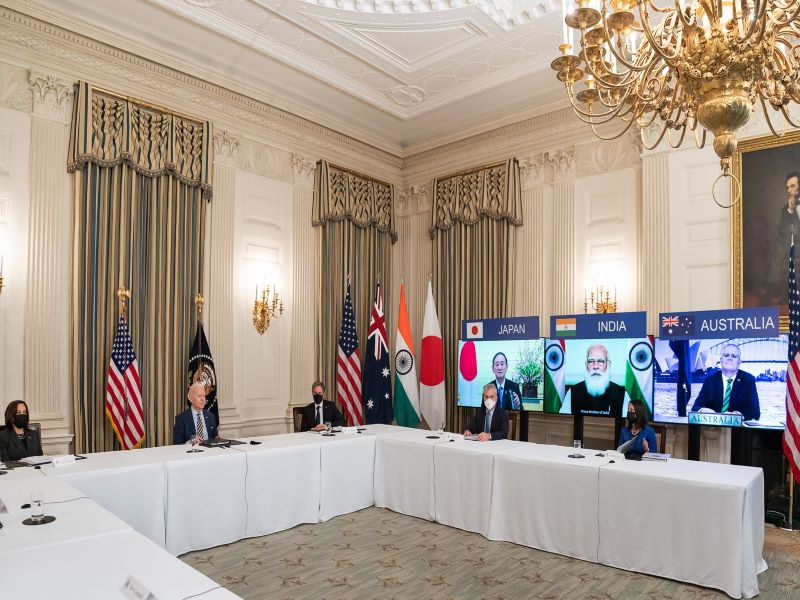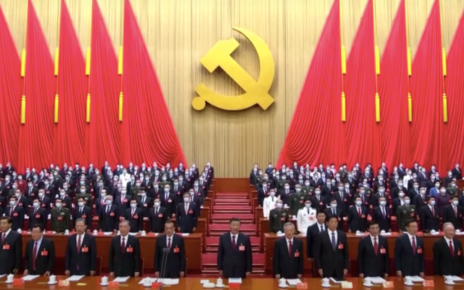March 12th marked the Quadrilateral Security Dialogue’s first leadership summit, consisting of the U.S., Australia, India, and Japan. The summit is part of a global shift towards the Indo-Pacific and has prompted speculation into the Quad’s commitment and effectiveness in upholding Indo-Pacific security. The Quad can provide greater assurance for long-term engagement in the region by promoting a strategy that appeals to like-minded partners’ shared strategic interests. The Blue Dot Network – formed by the U.S., Japan, and Australia – is one avenue for demonstrating its commitment towards balancing China’s influence and cementing its long-term presence in the region.
Meeting the global infrastructure investment gap, the BDN incentivizes infrastructure investment for projects that adhere to its strict evaluation standards. The BDN is the product of years of internal restructuring programs geared towards creating financial institutions capable of supporting and providing assurance on large-scale, risk-averse, projects to encourage more private investment. It remains to be seen, however, whether countries with commitments with both U.S. and China are willing to choose one financing method over the other, as many throughout the Balkans, Southeast Asia, and Africa have signed onto China’s trillion-dollar Belt and Road Initiative. A BDN supported by the full scale of the Quad may rival the Belt and Road and stands the best chance of offsetting its global influence. Following the leadership summit, the trilateral partners need to focus on recruiting India and incorporating its resources into the BDN if the Quad is to cement its position in the Indo-Pacific.
India has crucial geostrategic importance to the Quad and has a unique relationship with China. Turbulent India-China relations have functioned strictly as a mode of advancing each party’s strategic interests. However, heightened border tensions between China may have cemented perceptions in New Delhi of changes in the bilateral relationship amidst the development of the BRI in the Indian Ocean Region and increasing Pakistan-China cooperation. New Delhi has also grown tense as neighbouring countries like Pakistan have grown closer with China and as the BRI development progresses in the Indian Ocean. The BDN offers India an opportunity to meet the challenge by expanding its multilateral and bilateral relations with the Quad members and other interested countries in participating in the Dialogue, in a list that includes South Korea, New Zealand, and Vietnam.
The trilateral partners should also continue strengthening diplomatic relations with ASEAN which has expressed a reluctance to align with either the U.S. or China. However, Southeast Asia has grown wary of China’s increased assertiveness in the South China Sea and uses of wolf-warrior diplomacy and has sought to balance its economic interests with China and its security needs with the U.S. To this extent, engagement in the region needs to determine the acceptable levels of Chinese and U.S. influence in each country and identify what incentives can entice collaboration. Promoting the BDN is a difficult task in Southeast Asia as mainland countries such as Cambodia, Laos, and Vietnam have favoured developing stronger economic relations with China. There are, however, members within ASEAN that have expressed interest in pursuing financing opportunities with the trilateral partners. Engagement with these countries should focus on rebuilding diplomatic relations damaged by the past U.S. administration and refrain from displaying the BDN as an extension of any U.S. counter-China strategy.
It is also uncertain whether global powers outside of the Indo-Pacific are willing to participate in the BDN. The United Kingdom’s application to join the Comprehensive and Progressive Trans-Pacific Partnership and motion towards Democracy 10 demonstrates its strategic interest in the Indo-Pacific and recognition of the China challenge. The report released on March 17th, titled “Global Britain in a Competitive Age”, only ascertains Britain’s intention to increase engagement in the region and to deepen its relationships with like-minded partners. As with India, the BDN can be a valuable forum for advancing the UK’s influence and deepening relationships without explicitly adopting an anti-China position.
Addressing the global infrastructure investment deficit through financially and environmentally sustainable practices should be the basis for engaging with potential members. Getting India on board needs to be a priority for the trilateral partners to give further credence to the Quad’s ability to translate agenda-setting into actionable policy initiatives. Together, the BDN can provide a desperately needed brand of assurance in the Indo-Pacific as the international community recovers from the COVID-19 pandemic. However, this too may develop into yet another theatre for a confrontation between the U.S. and China. Under the backdrop of a global reluctance to choose between the two countries, both the U.S. and China can benefit from cooperation, which has the added effect of enticing countries to participate in their respective initiatives.
Photo: The first Quad Summit with the U.S., Japan, India, and Australia (2021), by The White House via Facebook. Public Domain
Disclaimer: Any views or opinions expressed in articles are solely those of the authors and do not necessarily represent the views of the NATO Association of Canada.




